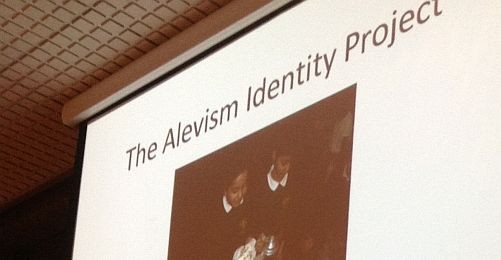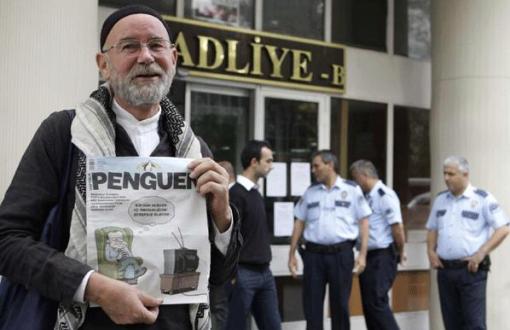
“He was feeling trapped in a cage,” says Cemile Gurgur, sister-in-law of the latest young man in suicide serials in London ’s Alevi Kurdish community.
Having worked in a supermarket for four years, 25-year-old Huseyin Gurgur said it was making him feel ‘insane’ and took a month off from his 12-hours a day shift, packed his luggage, had a shower, asked for directions to airport to fly over to Turkey. It was the last cigarette he was having in a council estate balcony covered with mosquito nets resembling a cage before he slowly burned the net and jumped to his death while more than 15 of his relatives were at home to say farewell to him.
“He never liked working in supermarkets, just wanted to find a job that he can work in a suit,” adds sister-in-law to explain his frustration at work.
As a secondary school leaver, Huseyin came over to the UK at the age of 18 in 2006. Straight away, he started working in family off-licenses with relatives but due to visa problems he was sent into a detention camp in 2008 and removed from the UK after spending three months in the camp. Back in the UK in 2009, he carried on working in the same job and bought a flat for his frail parents back in Istanbul .
Living in between his sisters’ and a brother’s house in London , Huseyin comes from a large family with seven siblings. “Huseyin didn’t go to any community centre or weddings. He was disconnected from the community totally,” says Bektas Gurgur, his businessman brother.
He was given anti-depressants which he claimed to take overdose on Tuesday, four days before committing suicide on May 18. With his limited English, he communicated with doctors through translators at the Mile End hospital where doctors couldn’t find overdose and sent him home on Friday giving ‘ok’ to his discharge; a day before he killed himself suffering from depression.
Most vulnerable group toward suicide
Undetected by British mainstream media, over 48 young Alevi Kurdish men have killed themselves since 2003 in London.
At a time suicide rates in London have dropped from the highest to the lowest in Britain by 2011 according to the Office for National Statistics, Alevi Kurdish community has been experiencing staggering levels of suicides. The grim statistics show that young Alevi Kurdish men are now the ethnic group most vulnerable to suicide in the country.
Widespread fear is pervasive in the community yet another young man may commit suicide any moment.
Almost all the suicides have taken place in the heart of Britain 's Turkish community in north and east London.
Why would a young person at his most exciting and energetic years decide to take his own life? Very little academic or non-academic studies have been conducted to provide an answer.
Macho society under scrutiny
A study by the Times newspaper entitled “Macho society under scrutiny as despair drives young men to ‘honorable death” may shed some light on the issue. The piece identifies the following patterns among the youth: “Most are young, aged between 19 and 27. All were born abroad. Most of the men were of Kurdish ethnicity and part of a family of political refugees.”
Another valuable explanation is provided by Umit Cetin who is currently studying for a PhD at the University of Essex , researching into suicide in the Kurdish/Turkish community in London. He has been a visiting lecturer at the Department of Social and Historical Studies, University of Westminster.
According to Cetin, the high incidence of youth suicides cannot be simply explained in terms of the individual lives of the suicides. Instead, he draws on the structural location and marginalized conditions of existence of this community in London.
“Similarly, everyone is seeking a quick-fix solution by pointing to external causes such as getting involved with gangs, alcohol or drugs,” he says. Cetin argues that the problem is more deep-rooted.
Stemming from Cetin’s work, examining UK Alevi community’s ethnographical picture postulates some sort of basis for a reasoning. Approximately 250,000 Alevis are living in the UK , the majority of whom live in London around Hackney, Haringey and Enfield in particular. In 1989, the first generation came to the UK as refugees from rural areas of Central Turkey. They had been living in fear of persecution for their ethnic and religious beliefs, which became more acute once the ultra-nationalist right-wing parties - MHP were elected in provinces, such as Kahramanmaras, where there had been a massacre of Alevis in 1978.
This is still the case in Turkey, where Alevi communities cannot speak openly about their faith and are discriminated against in all spheres of life. Thus, it is the negative features of their collective identity which makes them a minority twice-over, with the consequence that they are less connected and more distanced from Turkey as their country of origin. This is the most significant difference from other communities, that the Alevis have found it difficult to develop a strong community identity.
It appears to that the heart-breaking state of Kurdish Alevi youth in London has a multifaceted dimension. All of them come from working class background with low education level while facing formidable language and cultural barriers. This coupled with their parents’ inability to integrate into the UK system.
Alevism lessons and the award
Cetin argues that the trajectory into a suicide prone social position begins when the children drop out school and involve in gang activities therefore, with the demand from London Alevi Cultural Centre, they started a project with Dr Celia Jenkins, course leader of Sociology at the University of Westminster, to help understand the problems facing the second generation Alevis in terms of an identity crisis, which may account for their disaffection and suicide.
Jenkins has been working to introduce Alevism lessons into mainstream English schools for which she has been awarded by an MP recently.
“Teachers assumed that the children were Muslim as they came from Turkey . However, in making this assumption about Alevi children, when they didn’t fast or say prayers five times a day, they were sometimes bullied by other pupils as ‘bad Muslims’,” she says.
“Teaching about Alevism will help help in three ways,” she adds. “It will help build a sense of belonging to schools, understanding each other which eliminate conflicts and violence at school and also a sense of 'positive' identity for Alevi Kurdish children.”
Sociologists describe second generation Alevi youth as in an anomic condition because they want more from life than they can achieve without an education and they feel beyond the reach of society to either give them a structure within which to achieve or regulate their desires and behavior. (FG/BM)
* Click here to read the original article in Turkish.






